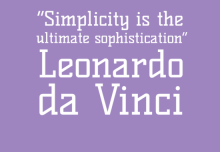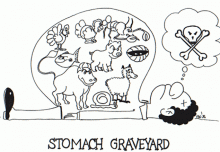TOP TEN TIPS FOR GOING VEGAN by Joyce Cunningham
I became a vegan in the early 1980s, while working in London. I had been ruminating about it since attending an address by Spike Milligan (British actor/writer) at a ‘Save the Seals’ rally in Trafalgar Square. My concern about animal welfare was one of the reasons I attended but Spike’s passion, coupled with the horrors shown on film of baby seals being clubbed to death, convinced me that to live peaceably with myself, I had to stop eating and using animal products. Acquiring vegan food and toiletries was difficult at the time. For instance, the procurement of Tomor (kosher) margarine involved a 35-mile journey from my home in Essex to Golders Green in London. Thankfully, nowadays, vegan produce is far more widely available. For those considering a vegan lifestyle, I offer the following advice:
1. Be Authentic
Please be cognizant of the fact that veganism is not just a case of eliminating meat, fish and dairy products from the diet. Rather, it involves a complete and never-ending transformation of habits, requiring every label to be scrutinized before purchase to ensure that products are completely animal-free, with no animals being used/abused in their production – including everything from clothing to motor cars (e.g. no leather seats).
2. Level of Commitment
Veganism is embraced for different reasons by different people. Some adopt a vegan way of life for health reasons, others for environmental concerns, but the majority are ethically motivated and become vegans because of their abhorrence of the widespread cruelty inflicted on fellow creatures. In my experience, the former two categories attract people who might waver from their intentions and return at some stage to former lifestyles, whereas the latter category demands a more profound, long-term commitment – because allegiance is not to oneself, but to animal welfare.
3. Vibrant Health
Vegan food consists of fruit, nuts, vegetables and pulses and medical studies have confirmed that these foodstuffs constitute a healthy diet. It is high in fibre, low in saturated fats, and, with the addition of B12 supplement, many people have been advised by their doctors to follow a vegan diet to alleviate or avoid certain ailments, e.g. bowel or gastrointestinal tracts problems.
4. Cruelty-Free Ethics
The cruelty-free lifestyle liberated my mind of a subliminal burden, hidden deep in my conscience and about which I was unaware until the transformation had taken place. Beforehand, I was conscious of how deeply I disliked and disapproved of animal exploitation but could not have envisaged the euphoric feeling of freedom that accompanied becoming a vegan – without a doubt, it’s the best decision I have ever made.
5. Eco-friendly Choice
Animal-based foods require extra energy to produce, and create extra waste products (greenhouse emissions), therefore eliminating meat and dairy from the diet is an eco-friendly choice. According to the U.S. Environmental Protection Agency, about 1,600 grams of carbon dioxide are emitted for every 100 grams of meat produced. That’s more than 14 times the amount of greenhouse gas emitted during the production of fruit, vegetables and starches.
6. Vegans as Eccentrics
Taking the above points into consideration, it never ceases to surprise me that veganism in humans is still viewed as unnatural. Given that there are millions of vegetarian and herbivorous animals in the wild, from antelopes to zebras, and that our closest relatives – primates – are vegetarian [and have been for the past 30 million years], it does not strike me as at all peculiar that a growing proportion of humans are vegan.
7. It’s Chic
Curiously, veganism has recently become chic – therefore, acceptable. Among recent converts are Bill Clinton (following heart problems), Al Gore, Tobey Maguire, Brad Pitt, Russell Brand, Alanis Morissette, Ellen DeGeneres and Michelle Pfeiffer. Among steadfast and outspoken proponents are Joaquin Phoenix, Woody Harrelson (raw foodist), Jared Leto, Alicia Silverstone, Bryan Adams and Pamela Anderson. In fact, a 2012 study by Harris Interactive reported that 2.5 percent of Americans (nearly 8m people) identified themselves as vegan. Great news!
8. Speciesism
After witnessing the treatment of animals in laboratory experiments, British psychologist Richard Ryder coined the term “speciesism” in 1970 to describe the prejudice against other species. He was a member of a group of intellectuals at Oxford University and firmly believed that: “All beings that feel pain deserve human rights”. Only when humans rid themselves of that prejudice will animals be safe from exploitation by humans. In the words of Leonardo da Vinci: “The time will come when men such as I will look upon the murder of animals as they now look on the murder of men”.
9. Historical Connections
The word vegan and the first British Vegan Society was founded in 1944 by Donald Watson (1910-2005) and the first vegan society in America was founded in 1948 by Catherine Nimmo and Rubin Abramowitz. However, many people espoused vegan diets before the establishment of these societies and one such was Percy Bysshe Shelley, arguably the finest lyric poet in the English language. In his publication A Vindication of Natural Diet (London, 1813) Shelley states that “Comparative anatomy teaches us that man resembles frugivorous animals in everything, and carnivorous in nothing” – written nearly 200 years before DNA confirmed just how closely we are connected to the bonobo!
10. Question Time
Be prepared for constant questioning! The Oxford Dictionary defines a vegan as a person who does not eat or use animal products – nothing more, nothing less. Despite this, I am frequently questioned about the environment, conservation, recycling, climate change and so on – all of which are worthwhile concerns but have nothing, whatsoever, to do with being a vegan. One recurring question is “How do you maintain strength on a vegan diet?” and my reply is: “I don’t know; ask the elephants!”





